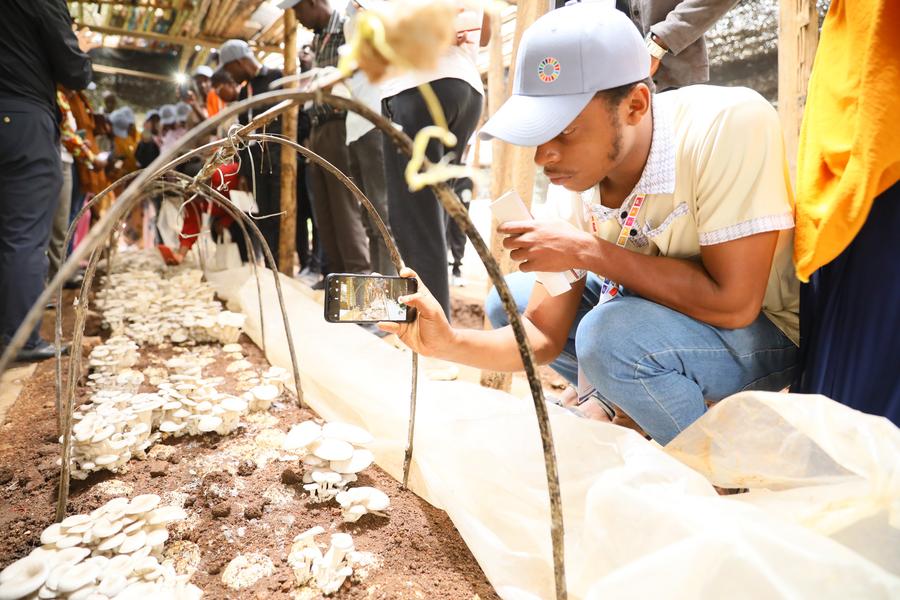In southern Rwanda, Busasamana Technical School is taking an innovative step to combat student hunger and enhance nutrition by cultivating mushrooms through Juncao technology a sustainable and low-cost solution introduced from China.
Juncao, which translates to “fungus grass,” allows for mushroom cultivation using grass instead of wood, thereby conserving forests and promoting environmental protection. The technology is now being piloted to strengthen Rwanda’s school feeding programme, which is essential in supporting children from low-income families and improving school attendance.
Alice Allouette Marie Munyurabanga, a physics teacher and feeding coordinator at Busasamana Technical School, believes mushroom farming can address recurring challenges in the programme. “The school feeding program faces a real challenge when some parents cannot afford to contribute on time,” she said. “Mushroom cultivation is potentially a good option to fill the gap.”
Munyurabanga was among 57 participants from five African nations attending the Second African Training Workshop on Applications of Juncao Technology, held from July 16 to 23 in Huye District. The workshop, co-hosted by the UN Department of Economic and Social Affairs, Rwanda’s Ministry of Agriculture and Animal Resources, and China’s Fujian Agriculture and Forestry University, covered mushroom cultivation, livestock feed, and environmental sustainability.
Having previously toured China in May to witness Juncao applications firsthand, Munyurabanga is now eager to implement the techniques at her school. “With the knowledge I have gained, I will be able to help produce enough mushrooms for our students,” she said.
As Rwanda continues to explore innovative solutions for food security, Juncao technology represents a promising tool to transform school meals and empower communities through sustainable agriculture.

